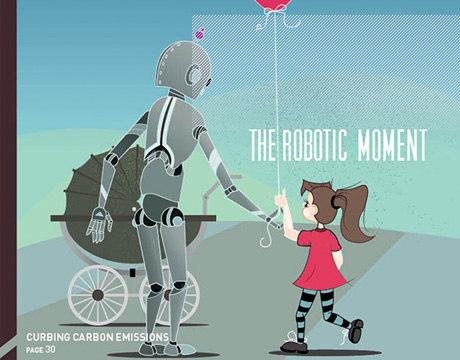The Robotic Moment
The Robotic Moment


Sherry Turkle, the psychologist who directs MIT’s Initiative on Technology and Self, sometimes tells the anecdote about how she was once approached by a young psychology graduate student after a talk about reactions to “sociable” robots that can mimic and evoke emotions. Anne, the student, confided that she would trade in her boyfriend for a sophisticated Japanese robot if it could provide what she described as “caring behavior.”
According to Turkle, who retold the anecdote during a plenary lecture to the American Association for the Advancement of Science in Boston this past February, “Anne told me that she relied on a feeling of civility in her house and did not want to be alone. She said, ‘If the robot could provide the environment, I would be happy to produce the illusion that there was somebody really with me.’”
This was exactly the type of ironic remark graduate students make. Yet Anne was not joking. According to Turkle, who has studied the psychology of human interactions with technology since the first electronic games appeared in the late 1970s, there are so many people who feel as Anne does that something must be changing fundamentally in our relationship with robots and artificial intelligence.
Today’s robots are not only smarter, but increasingly able to engage us emotionally. As a result, Turkle said, humans have begun to think about their relationships with robots in new and often startling ways.






